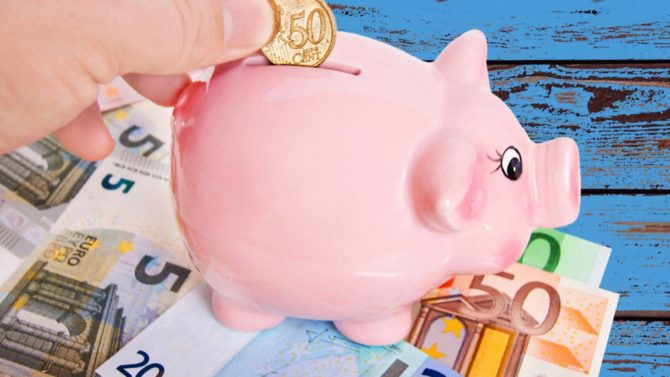19 ways you could save money if you live in France

With a little thought and some lifestyle tweaks, almost everyone can trim their outgoings and make life in France a little bit financially easier
1. Rather than the state of your finances, look at your bank account itself. Is it a cost-effective means of managing your money or are you incurring charges? Online banks are generally cheaper and some offer free banking. Take a look at what your account(s) offer and see if you can trim off any unwanted extras.
2. Consider opening an account just for household bills; if these are paid by cheque or direct debit you can manage without a card which means both cheaper banking and better control of outgoings.
3. If you don’t have a designated savings account, set one up! Offers vary from bank to bank but most will offer one to suit your requirements and saving a modest amount every month gives you an emergency fund for unforeseen expenses.
4. Look for accounts that ‘round up’ your card expenditure; this is an almost painless way of saving and the sums add up surprisingly fast.
5. Changing bank accounts is now a simple procedure and as many offer new customers cash incentives (even up to €160), switching is often worthwhile.
6. You could also consider using a bank and budget management app such as Bankin, Budgea or Linxo. There are hundreds available; check out the reviews and see which suits your needs best. Once you start tracking daily, weekly and monthly expenditure, it quickly becomes apparent where savings can be made.
7. A piggy bank is also a great way to save; all those little coins add up! Pop any loose change in a jar or money box and use the contents at the end of the month to pay for small items such as bread or patisseries at the bakery, buying stamps, having coffee with friends and so on. Some supermarkets have Eurocycleur machines which turn your coins into coupons and this is a fabulous way to get rid of large quantities of small change.
8. If you enjoy long walks, running or cycling then why not install an app such as Running Heroes that rewards your activity by providing vouchers or even cash, based on performance? If you like to give to charity, then using an app such as KM for Change or Charity Miles, which give money to charities based on how much you walk or run, is an economical way to donate.
9. If your larger electrical appliances (such as freezers or washing machines) are old, they are unlikely to be energy efficient and upgrading may well save you money.
10. Unplugging electrical devices when not in use is another way to trim bills and running dishwashers and washing machines during cheap rate periods is an easy way to reduce costs.
11. Use a comparison site to see if you are paying more than you need to for utilities. Many suppliers have great introductory offers such as two months free, in addition to lower overall charges. Switching is now quick and easy and everyone should review their utility suppliers on a regular basis. And don’t forget that simply turning the heating down by 3 degrees means that you can save up to 20% on your bills, plus, big sweaters are back in fashion!
12. Review insurance policies regularly – almost every policy can be improved upon in terms of either lower cost or better cover when it’s time to renew. Comparison sites are useful but nothing beats personal advice as a good broker can tailor the policy to suit your needs and will have access to products that are not necessarily available to the public.
13. Try using websites such as veepee.fr, showroomprivé.com or Cdiscount.com for unbeatable offers on household goods, holidays, clothing, pet supplies and so on.
14. Don’t forget that buying second hand or ‘pre-loved’ is right on trend. It’s better for the planet, and your wallet! Sites such as Leboncoin and local buy and sell groups are a great place to start. Vide-greniers and brocantes are a wonderful resource for clothing, furniture and household equipment and periodically taking part in one as a seller is a great way to divest yourself of unwanted items and make some money at the same time.
15. Reduce food bills by menu planning on a weekly or even monthly basis and basing meals around seasonal produce in combination with whatever is on special offer. Try to shop as little as possible and either stick firmly to a list (so that you won’t be tempted by impulse purchases) or do an online order for items such as UHT milk, pet food and cleaning supplies. This also saves time and bulk buying non-perishable items reduces trips to the shops and thus motoring costs.
16. Make sure you have loyalty cards for all the local supermarkets and use them wherever possible. If you can resist spending the savings and let them accrue, you may well be able to pay for an entire weekly shop by the end of the year. 17. Buying fresh food locally and direct from the producer is a cost-effective way to eat well. Visit local markets, join an AMAP (Association pour le Maintien d’une Agriculture Paysanne – association for maintaining small-scale family farming) or look out for farms which sell directly to the public.
18. Grow your own fruit and veg and trade gluts of seasonal produce with your neighbours.
19. Take packed lunches to work instead of eating out or buying a sandwich – it will save you a fortune. It may take a little longer when you first start but you will know exactly what you are eating and avoid the extra calories found in processed food.
_________________________________________________________________________
You might also like….
Clever ways to save money on life’s essentials in France
Share to: Facebook Twitter LinkedIn Email


